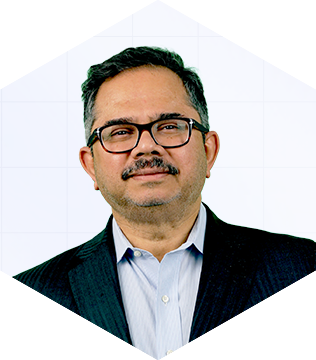ISO/TS 16949 Piles on the Requirements This Year
ISO/TS 16949 Piles on the Requirements This Year
By Chad Kymal, CTO , Omnex Inc
Background to ISO TS 16949:2016 Release
In 2014 based on a statement made by the IATF, there was a general feeling that the Automotive Industry would not upgrade the ISO TS 16949 standard to the new ISO 9001. Hearing this news caused some general dismay in the Automotive Industry. In a survey conducted that year, the Tier One suppliers to the Automotive Industry related their desire to update their management systems to ISO 9001. Additionally, they were not happy with the Customer Specific Requirements or CSRs which are quite onerous in the Automotive Industry. Note, many years ago QS 9000, the predecessor to ISO TS 16949, was written to reduce the proliferation of standards in the Automotive Industry. The number of new requirements coming from both the OEMs and Tier Ones in the last few years definitely looks like a return to the pre QS 9000 days.
The IATF took two steps based on this feedback from the Tier One Suppliers. One, they announced that the ISO TS 16949 would be updated to ISO 9001:2015 and that they were going to create a task force to update it. Second that they would try to understand customer needs before embarking on the change. When evaluating the draft standard to ISO TS 16949 the following are the forces affecting the 2016 standard.
Recent ethical scandals in the Automotive Industry, autonomous cars and automatic braking, and Tier One needs for simplifying Customer Specific Requirements are the main drivers of ISO TS 16949:2016. The recent NHTSA announcement brought about an agreement with 20 OEMS on equipping all new light duty vehicles with automatic braking and forward collision warning by 2022. This agreement and the race towards autonomous and semi-autonomous vehicles has resulted in a focus on product safety and embedded software in this standard. This along with recent ethical scandals involving a few OEMs in recalls and CAFÉ scores resulted in a requirement for Corporate Responsibility. Also, there are a number of accommodations taking requirements from Customer Specifics directly into the standard to reduce CSR differences between OEMs and Tier Ones.
ISO TS 16949:2016 Changes
Determining the number of "shalls" in these two standards allows us to make some interesting comparisons. One, that ISO TS 16949 has twice the number of “shalls” than that of ISO 9001:2015. Second, that there are 38 new “shalls” or requirements found in ISO TS 16949 from the IATF. The 38 new “shalls” represent roughly 30% of the ISO 9001:2015 requirements. Lastly, most of the new requirements of ISO TS 16949 are found in Clause 8 – Operation, which includes “product realization” in the previous standard.
https://www.omnex.com/iatf-16949-2016-training
Author

Chad Kymal
Chad Kymal is the CTO and Founder of Omnex Inc. He is the author of seven books and more than 100 papers including several on integrated management systems. Chad is currently on the writing committees for several standards including TC 22/ SC 32/WG 8 for ISO 26262 (Functional Safety), ISO/TC 176 for ISO 9001:2015 (Quality Management), ISO/TC 207 for ISO 14001:2015 (Environmental Management), and PC283 for ISO 45001 (Health and Safety Management Systems). He founded and was the CEO of an Automotive registrar for over 10 years and is familiar with conducting audits, being witnessed for audits, and also evaluating auditors and assessors. He authored and teaches a course for 3rd Party Auditors for Automotive Registrars on behalf of International Automotive Certification Bodies Association (IACBA). This course explains how 3rd Party Auditors audit IATF 16949 in an environment that includes ASPICE, Functional Safety and Product Cybersecurity. He is currently rolling out the course to global 3rd Party Auditors for IATF 16949. Chad has spent over 20 years in system, hardware and software development in various capacities. He assesses and works in automotive system, hardware and software for Agile, ASPICE, and Functional Safety ISO 26262. Chad is also currently an intacsTM certified Principal Assessor for Automotive SPICE.
Upcoming Webinar : Tabletop Exercises to Strengthen Your Cybersecurity (ISMS/TISAX) Posture
Speakers:
Date and Time:
Mar 13 2026 11:00AM Eastern Time (US and Canada)
Register